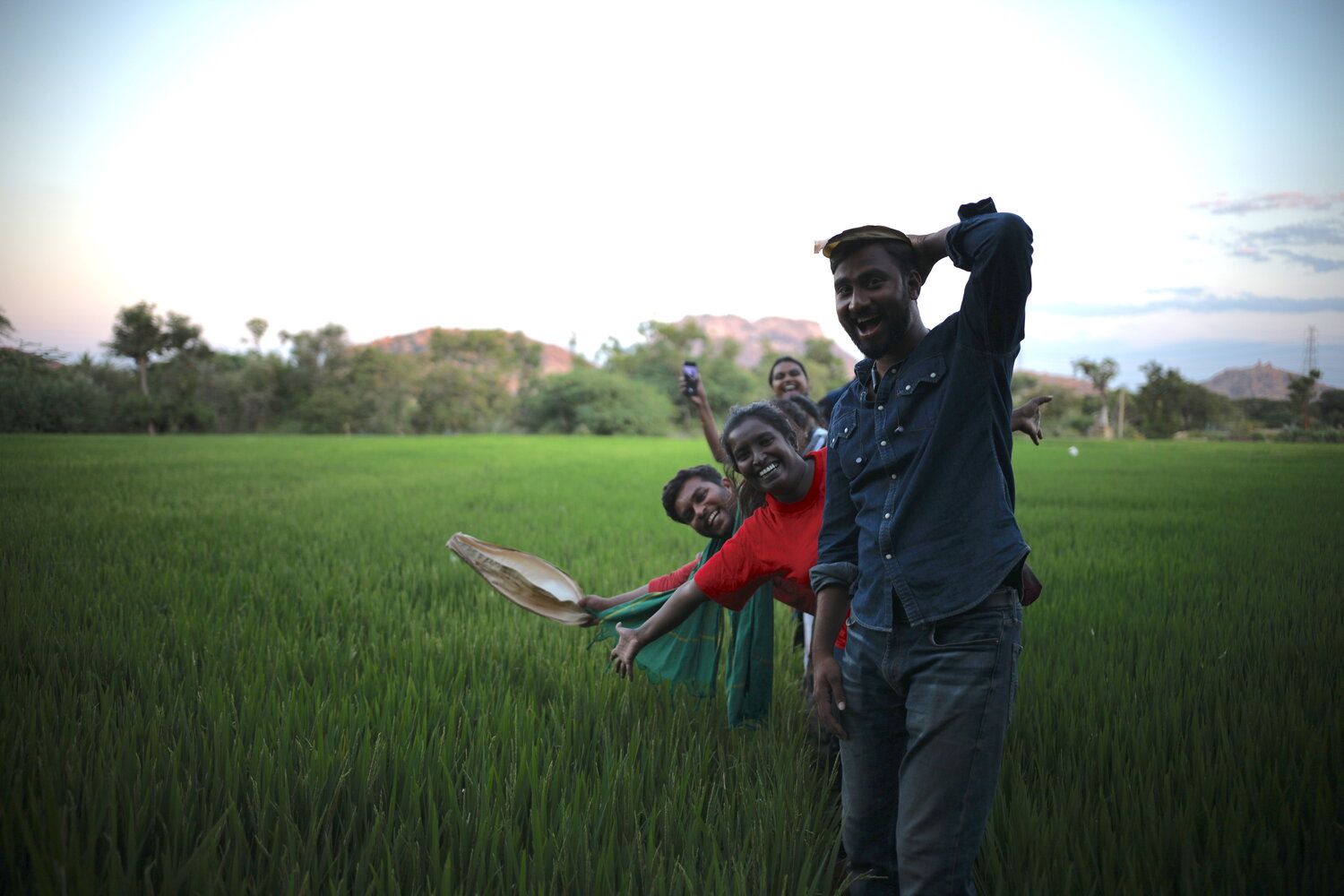A photo essay on the Agroecology Fund Global Learning Exchange, 2020
By Rucha Chitnis
“From tackling hunger, poverty and inequality to responding to climate change to safeguarding biodiversity and expanding nutritional choice, agroecology echoes the goals of the 2030 Agenda,” states a recent FAO report. In fact, it is widely acknowledged that agroecological practices are key to achieving the Sustainable Development Goals.
In February this year, more than 100 participants from nearly 30 countries gathered together for a week-long global learning exchange on agroecology. These practitioners work at the intersection of policy, scientific research, grassroots movement building and natural farming practices. They were joined by 18 donors, a half-dozen advisors, and other agroecology allies. The exchange was hosted by the Agroecology Fund (AEF) in collaboration with Amrita Bhoomi, a farmer-centered agroecology training center in rural Karnataka which is part of the South Asia chapter of the Via Campesina.
AEF is a diverse group of US, European, and Asian funders that jointly makes grants to advance science, practices, and policies for agroecology. The Fund has awarded $6.8 million to 38 collaboratives across Africa, Asia, Europe, Latin America and the USA. “There’s never been a more important moment to invest in agroecology than right now. Agroecology is an innovative solution for the multiple crises we are facing right now, from climate change to food insecurity to the loss of biodiversity,” said Daniel Moss, the executive director of the Agroecology Fund.
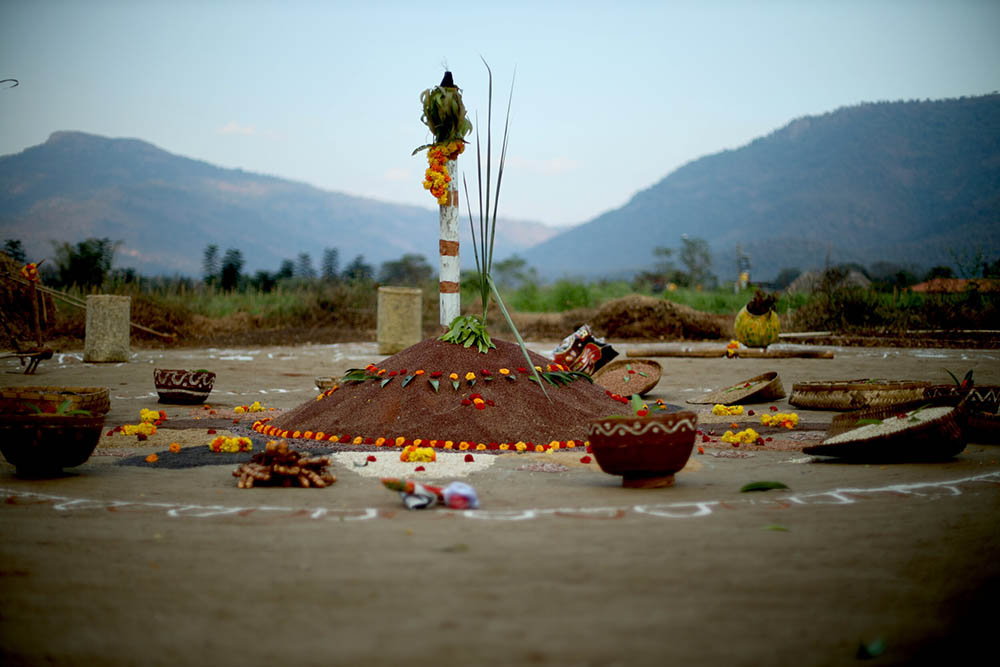
The learning exchange began with a site visit to Amrita Bhoomi in Karnataka, one of La Via Campesina’s agroecology schools in South Asia. Here, participants learned about agroecology as practiced in the Indian context — known popularly as Zero Budget Natural Farming (ZBNF) or Community Managed Natural Farming. The Amrita Bhoomi school trains smallholder dryland farmers in the region who are part of a vibrant state-wide peasant movement in Karnataka, and encourages their in-situ experimentation with agroecology in field plots.
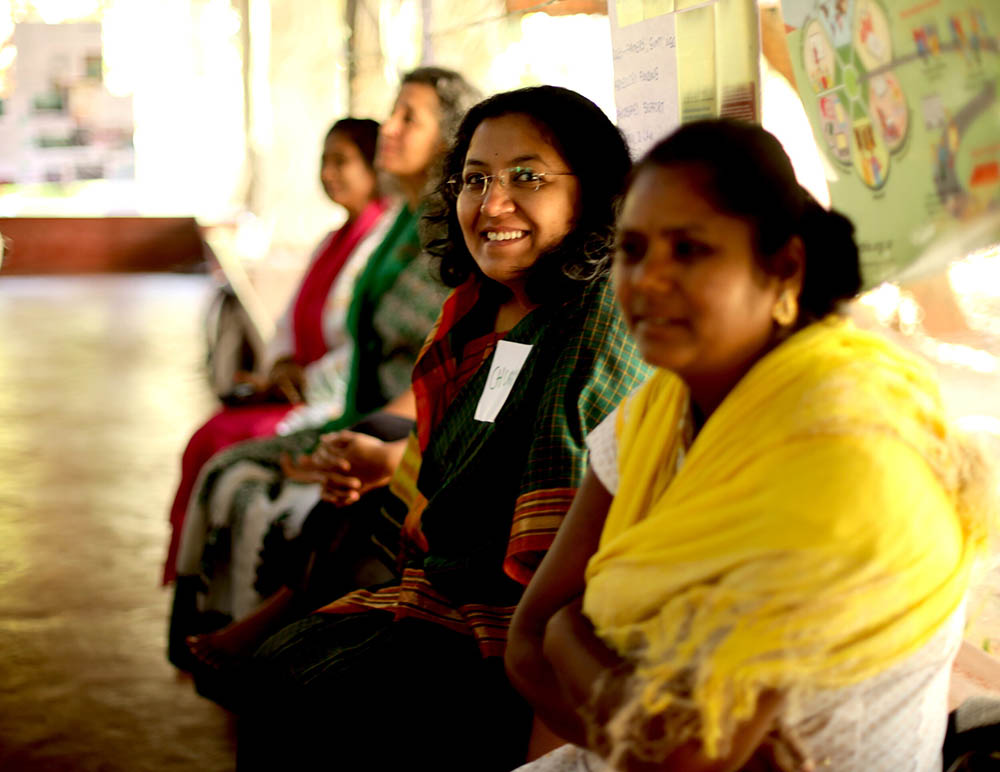
“Agroecology is not just about natural farming techniques for farmers in Karnataka, but also about reclaiming rights over our seeds and our food systems. It’s the very transformation of our society,” said Chukki Nanjundaswamy, coordinator of Amrita Bhoomi. It is estimated that more than 100,000 farmers across the state now follow agroecological principles. In 2019, Chukki presented Amrita Bhoomi’s training model to the United Nations Development Program.
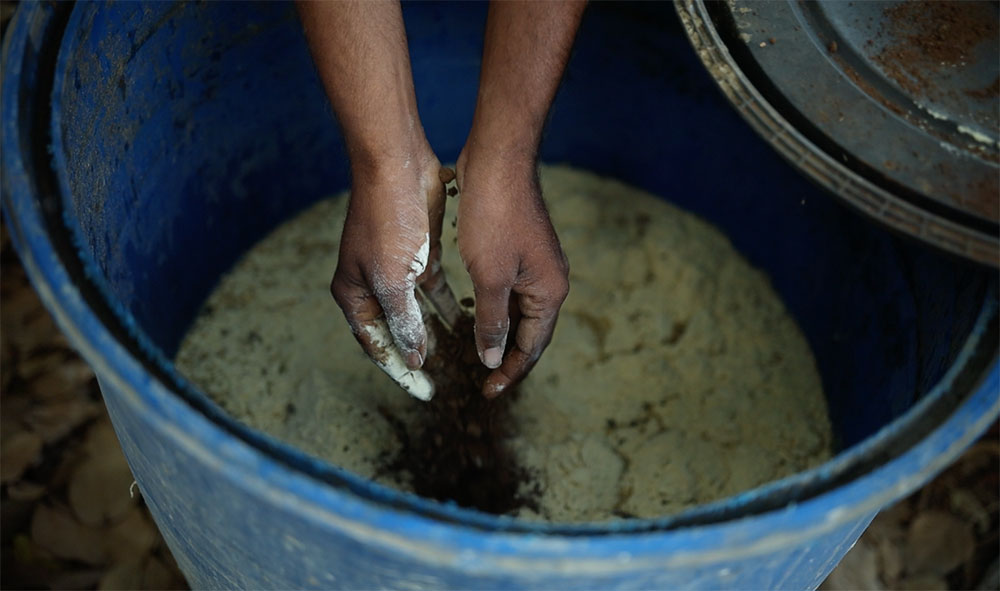
Farmers at Amrita Bhoomi demonstrated multiple practices of natural farming, including the preparation of jivamrita, a fermented microbial culture made from cow dung, cow urine and other organic materials, such as jaggery and flour made with pulses. At the learning exchange, participants learned that jivamrita, when applied to the soil, creates conditions for earthworms to thrive, building up the microbial activity in the soil and enhancing soil aeration and water retention.
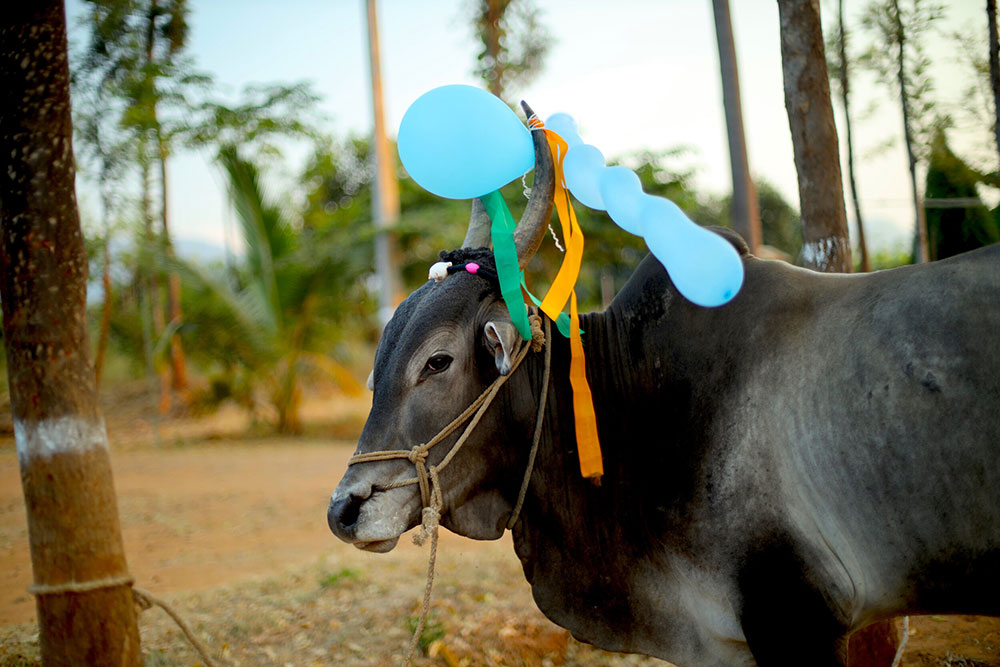
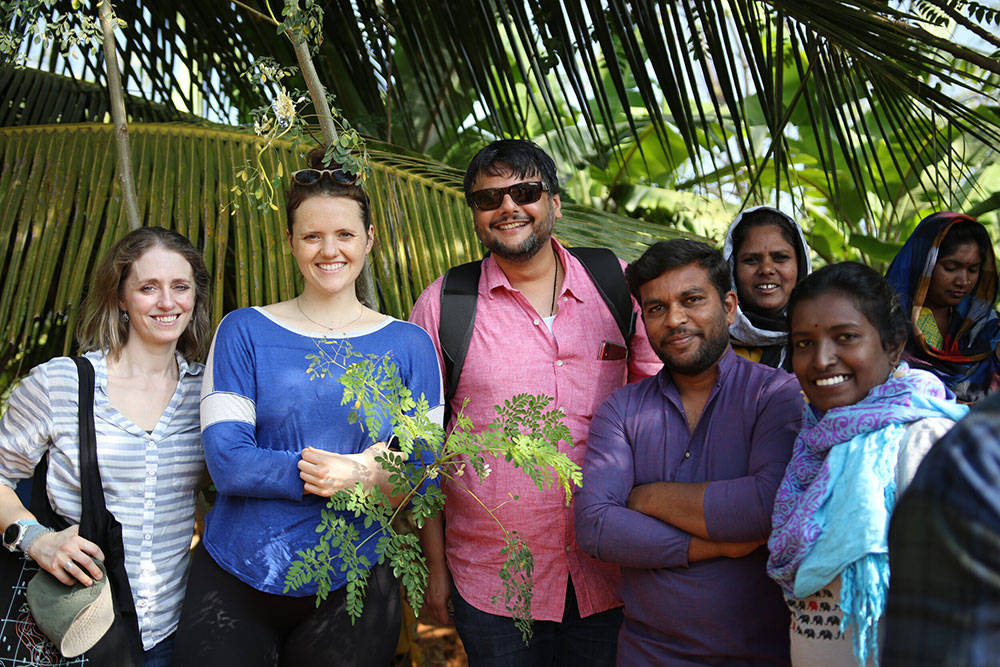
Through field visits and hands-on activities, agroecology trainers explained the principles of ZBNF. Participants learned about the five-layer model, in which the field is designed to mimic a forest. Trees, like coconut or mango, are planted alongside citrus fruits, bananas and nitrogen-fixing plants, like beans and pulses. This diversity of food crops ensures an abundant nutrition basket for farmer’s families and the market, as well as a steady income.
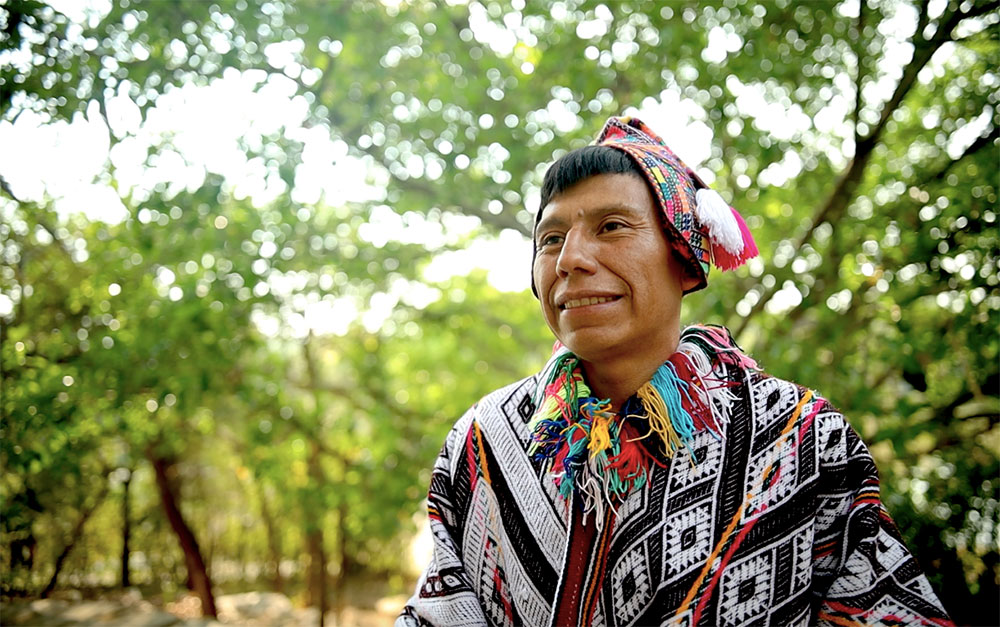
Ricardo Pacco Chipa is one of the stewards of the Potato Park in Cusco, Peru. He is a member of the International Network of Mountain Indigenous Peoples (INMIP). Together with other indigenous farmers, Ricardo conserves a staggering 1367 varieties of potatoes that are managed by six communities. INMIP is working across mountain ecosystems, especially in centers of crop origin, to protect biodiversity and indigenous peoples’ biocultural rights.
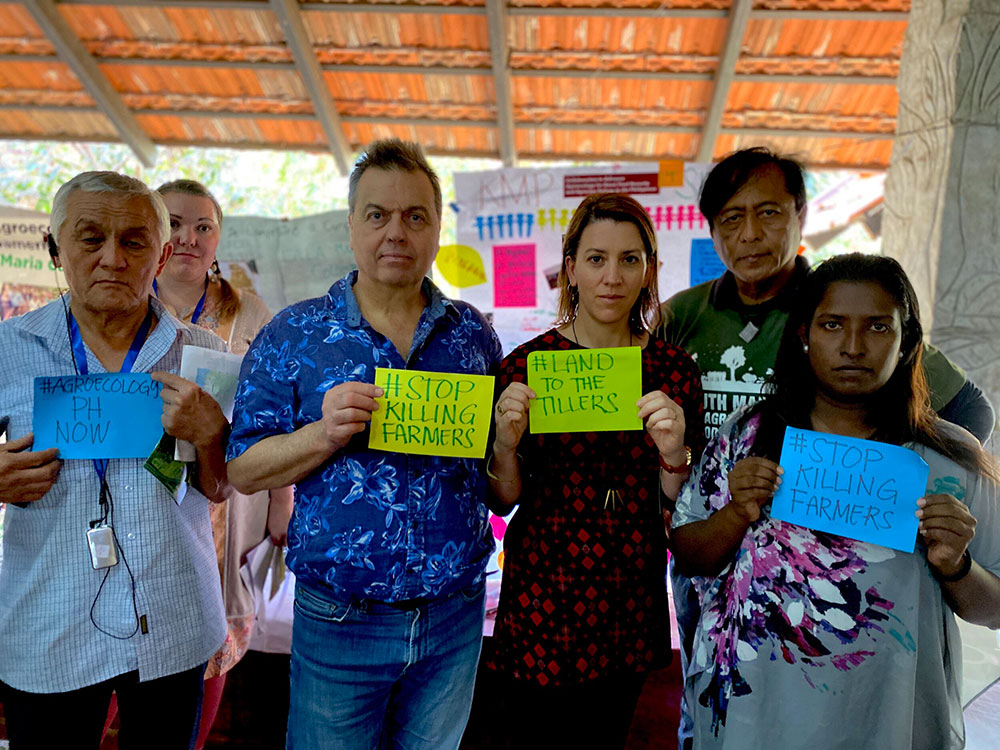
One of the key impact areas of agroecology is restoring dignity to smallholders, and reducing the inequity wrought by the industrial-agricultural complex. #StopKillingFarmers: Landless peasant advocates, Kathryn Manga of Kilusang Magbubukid ng Pilipinas and Sansen Ramos Maglinte of Sibol Ng Agham At Teknolohiya, shared their efforts to promote the rights of landless peasants in the Philippines, in the face of land grabs and brutal attacks. Nearly 250 farmers in the Philippines have been killed in a span of three years. Groups like these continue to persevere for genuine agrarian reform.
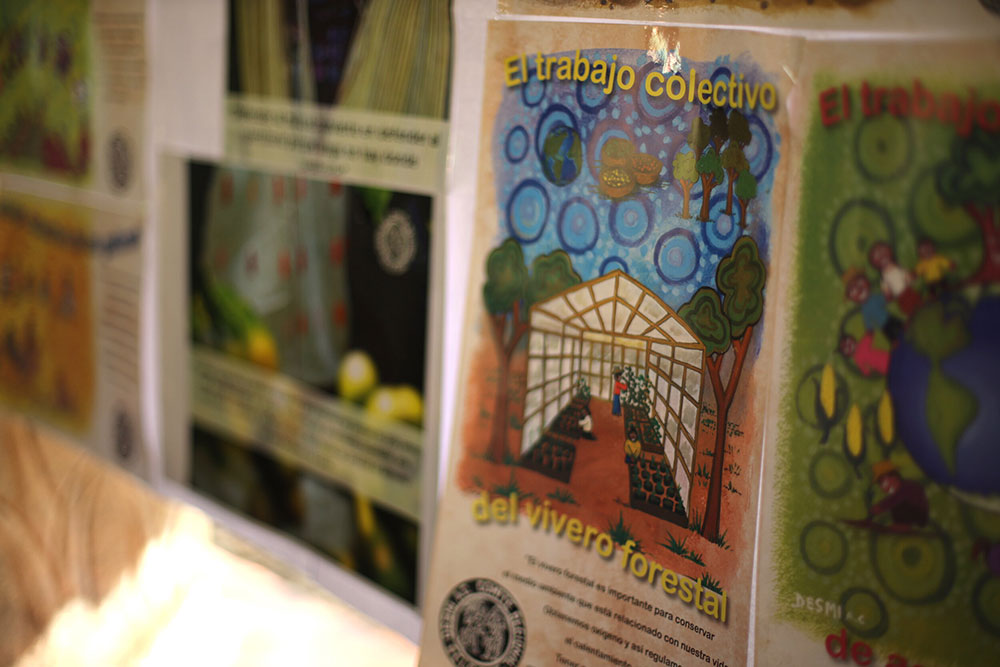
A delegation of farmers and activists from Mexico shared how free market policies have undermined smallholder farmers. Grassroots organizations have turned to alternative models, like agroecology to foster vibrant local economies. AEF partners in Latin America affiliated with La Via Campesina operate regional agroecology schools where in addition to studying agroecological practices, students learn the importance of advocating against seed laws that favor patented varieties, and thwart farmers’ free exchange of seeds.
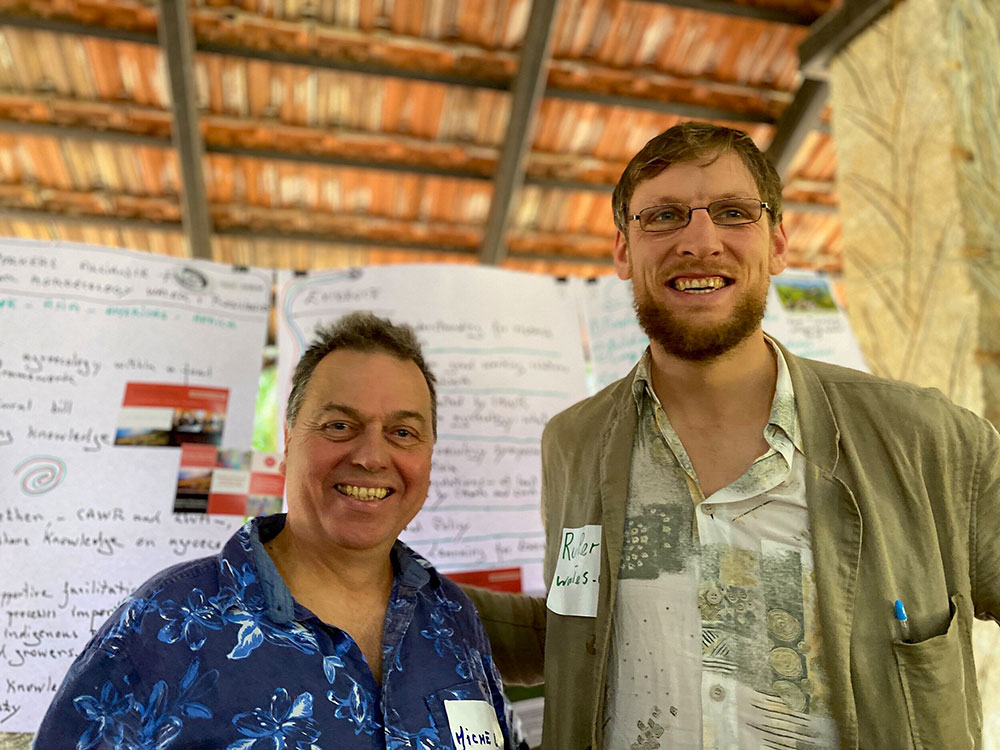
Grantees from across five continents shared ideas about how to increase small producers’ direct access to markets and consumers. “How do we create a new market structure for food sovereignty as opposed to having markets imposed upon us?” said Rupert Dunn, a Welsh bread baker and wheat farmer, who is a member of the Landworkers Alliance and collaborator with the Center for Agroecology, Water and Resilience at Coventry University.

Participants spoke about the value of ancestral and traditional knowledge, as well as the power of co-creating new knowledge and innovation, by bringing together indigenous peoples, scientists and researchers. They asked donors to align their values and principles with indigenous peoples’ vision, values and principles.
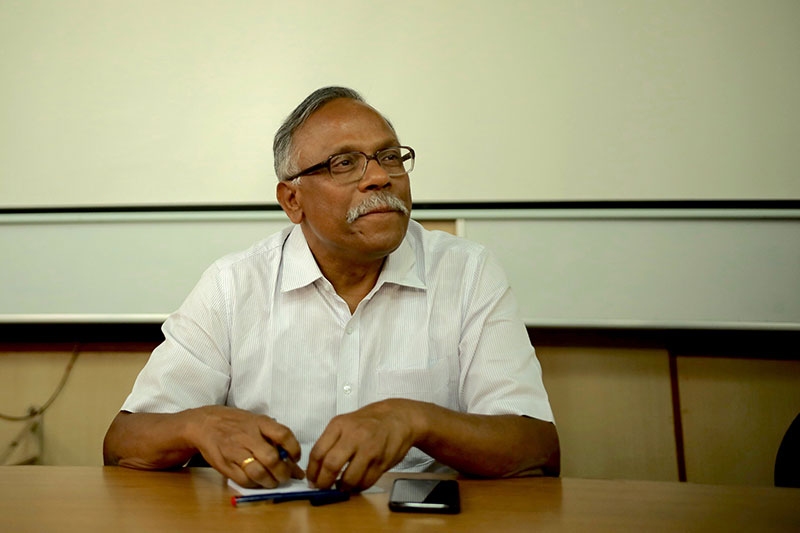
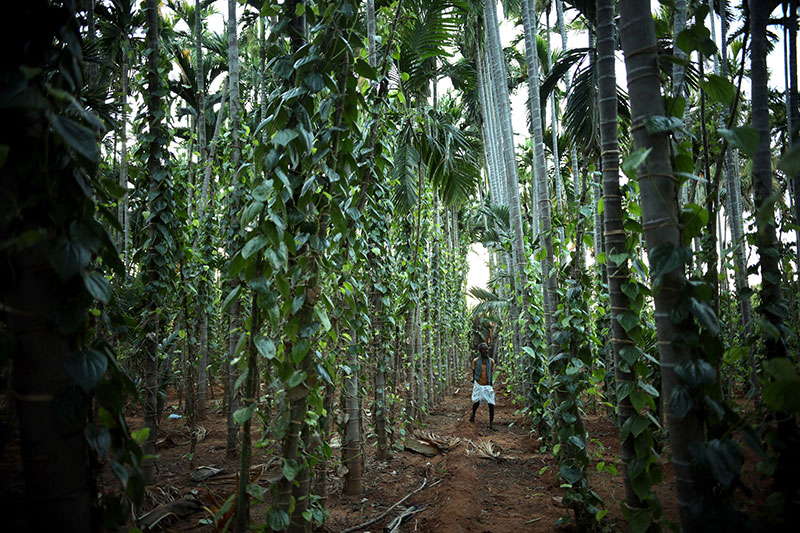
Vijay Kumar, Advisor to the Department of Agriculture at the Government of Andhra Pradesh, leads the project to amplify agroecology in drought-prone districts in the state. His vision is to scale Zero Budget Natural Farming (now called Community Managed Natural Farming) up and out, reaching six million farmers across Andhra Pradesh by the end of this decade. The program has garnered support from the state government, donor organizations and international banks such as the German overseas development bank, KfW.
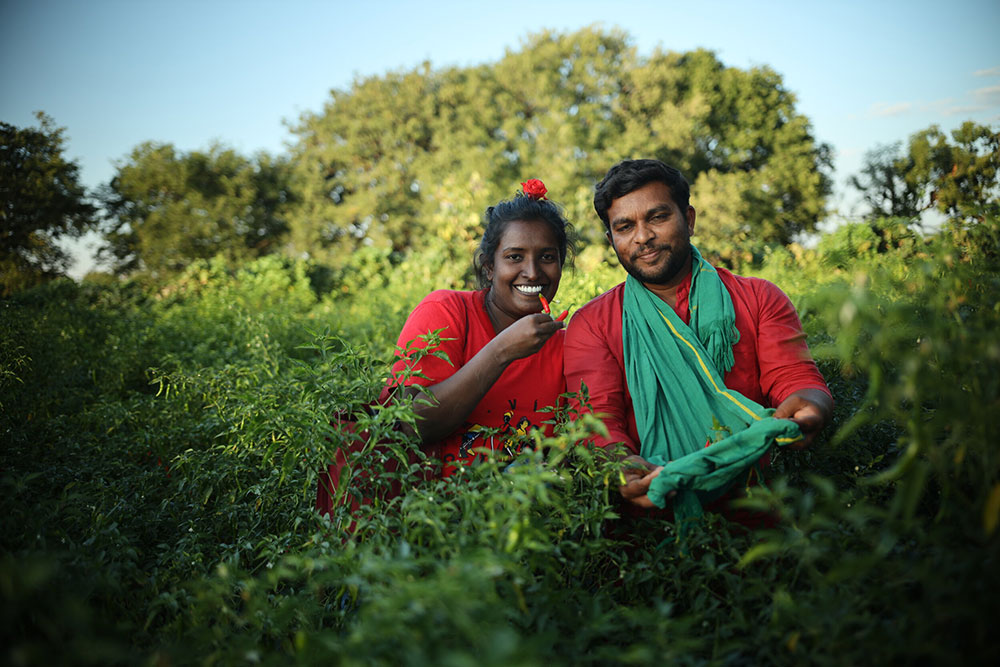
Azim Premji Philanthropic Initiatives (APPI), an Indian donor organization, has granted $14 million (100 crores) to the Zero Budget Natural Farming initiative in Andhra Pradesh — specifically towards technical support and natural farming fellowships for youth. It is currently the largest private grant to support agroecology worldwide. “We saw an agrarian crisis and recognized that small and marginal farmers were vulnerable. We partnered with the government of Andhra Pradesh, which has shown a deep commitment to ensuring farmers are self-reliant,” said Tasqeen Macchiwalla, General Manager at APPI.
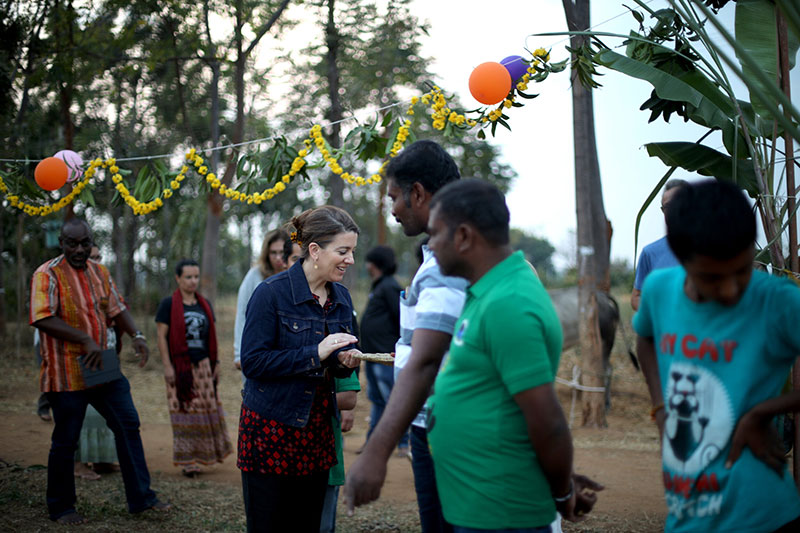
Still, agroecology receives a fraction of the financing that goes towards industrial agriculture. “It’s shocking that despite what we know about the benefits of agroecological farming solutions, globally less than 5% of public research dollars go to explore how we can promote these practices. In the absence of that public funding, there is a need for philanthropy to come in and support innovative research around the world,” said author and educator Anna Lappé, an advisor to the Panta Rhea Foundation.
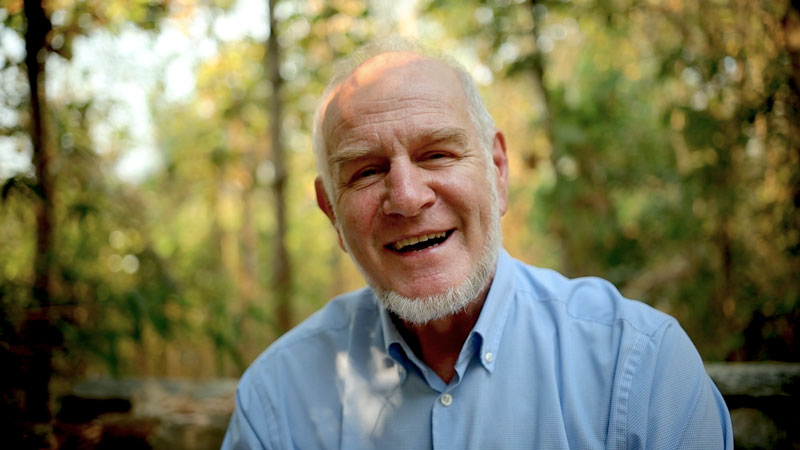
A paradigm shift in the funding world is urgent, and might well be underway. Emile Frison, a member of the International Panel of Experts on Sustainable Food Systems (IPES-Food), observes a rise in investments in agroecology from governments and bilateral and multilateral donor agencies. “The German parliament has instructed their Ministry of ForeignAaffairs to invest in agroecology and be an advocate for investments in agroecology. France has had agroecology on their agenda for a long time, and they have invested in West Africa,” he shared.
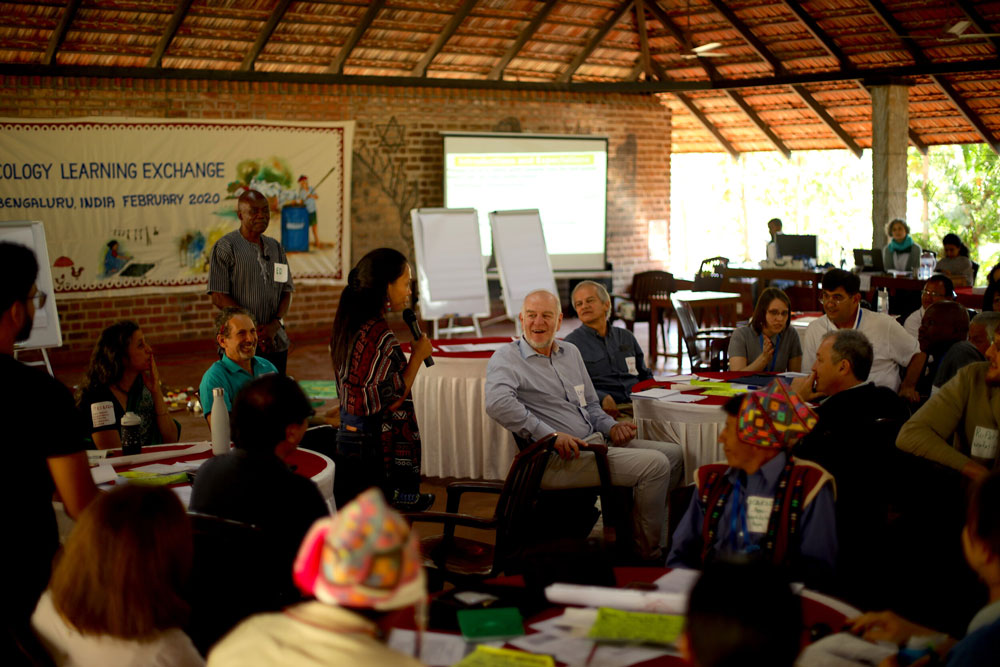
Both donors and grassroots networks working across the value chain are increasingly interested in blended financing, through which grants are paired with low-interest loans to support emerging agroecological enterprises. Several partner organizations that have income-generating businesses, such as CEDAC and Bionatur from Brazil, are ready to put this capital to work right away.
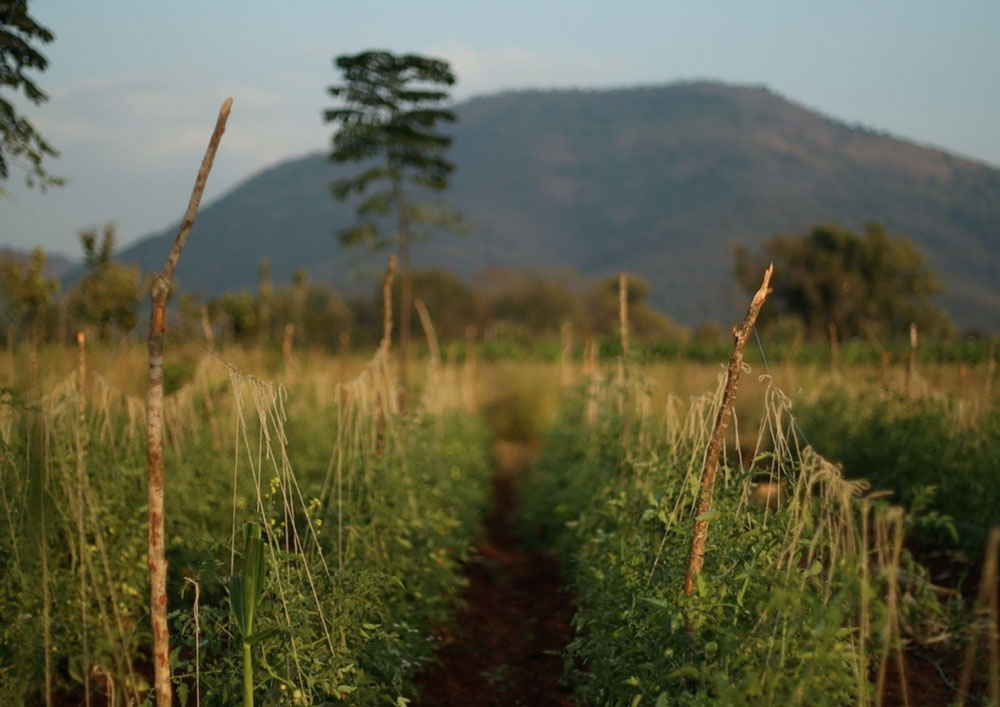
Professor Michel Pimbert, Executive Director of the Center for Agroecology, Water and Resilience at Coventry University, believes that agroecology is a counter-narrative to conventional industrial farming. Agroecology, he emphasized, focuses on equity and sustainability, where “circular farming systems mimic natural ecosystems” and reduces the dependence of small farmers on fossil fuels and other external inputs.
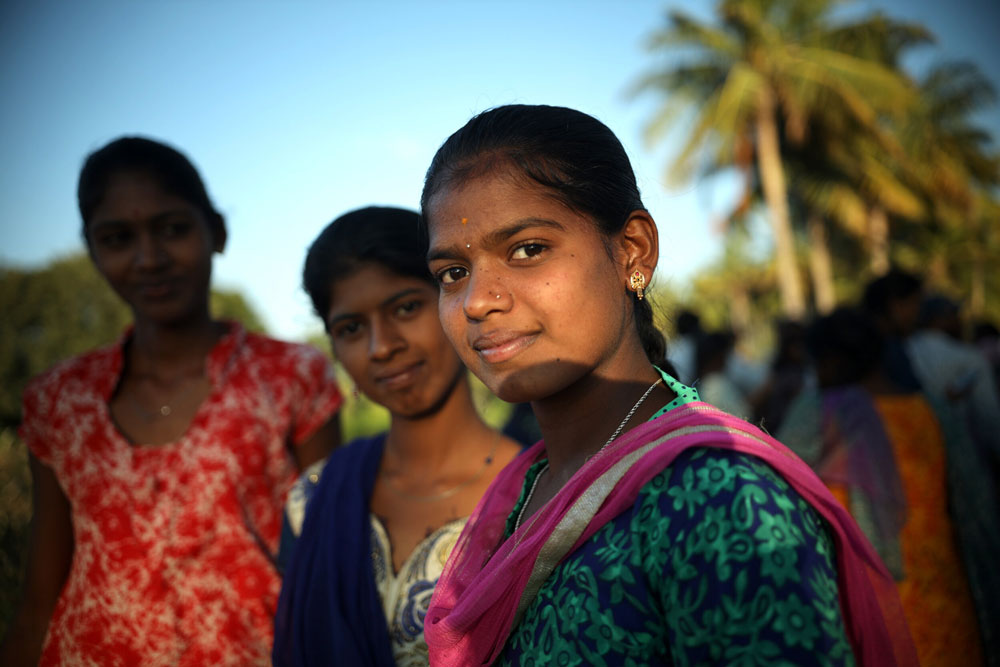
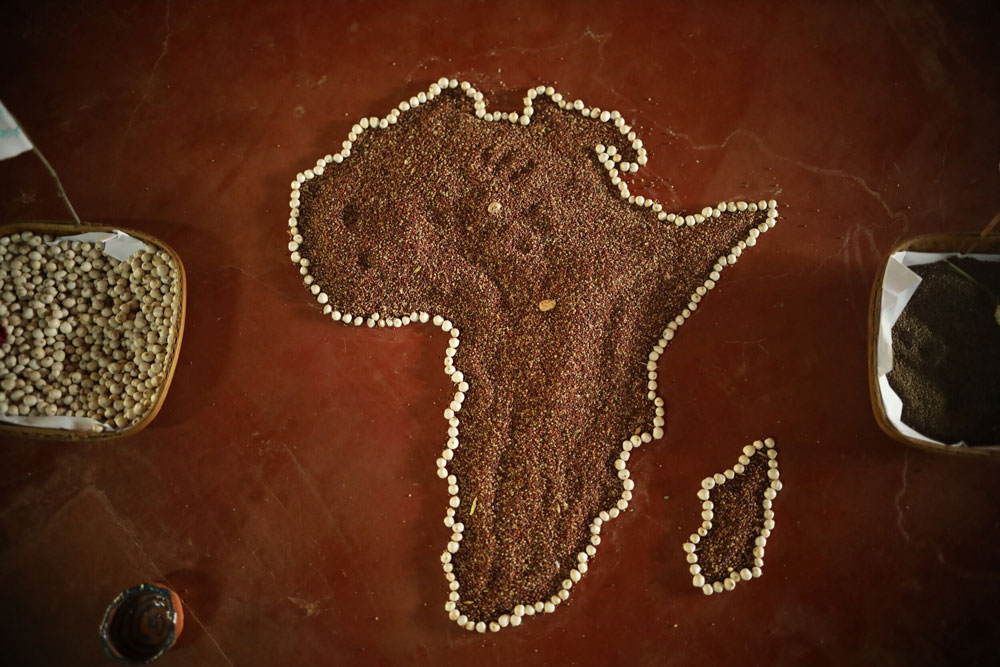
AEF shared its strategic plan with partners and asked for suggestions to inform the Fund’s next five-year plan. Partners reiterated how important it is for AEF and others in the donor community to listen and respond to the expressed needs of the agroecology movement.
Participants emphasized just how important it is to communicate evidence and successes to wider audiences. Million Belay, Coordinator of the Alliance for Food Sovereignty in Africa, shared how AFSA has documented local impacts in partnership with the Oakland Institute (also an AEF grantee). They published 33 case studies of agroecological practices across the continent and produced ‘Know Agroecology’, a media guide for journalists and communicators in the continent.
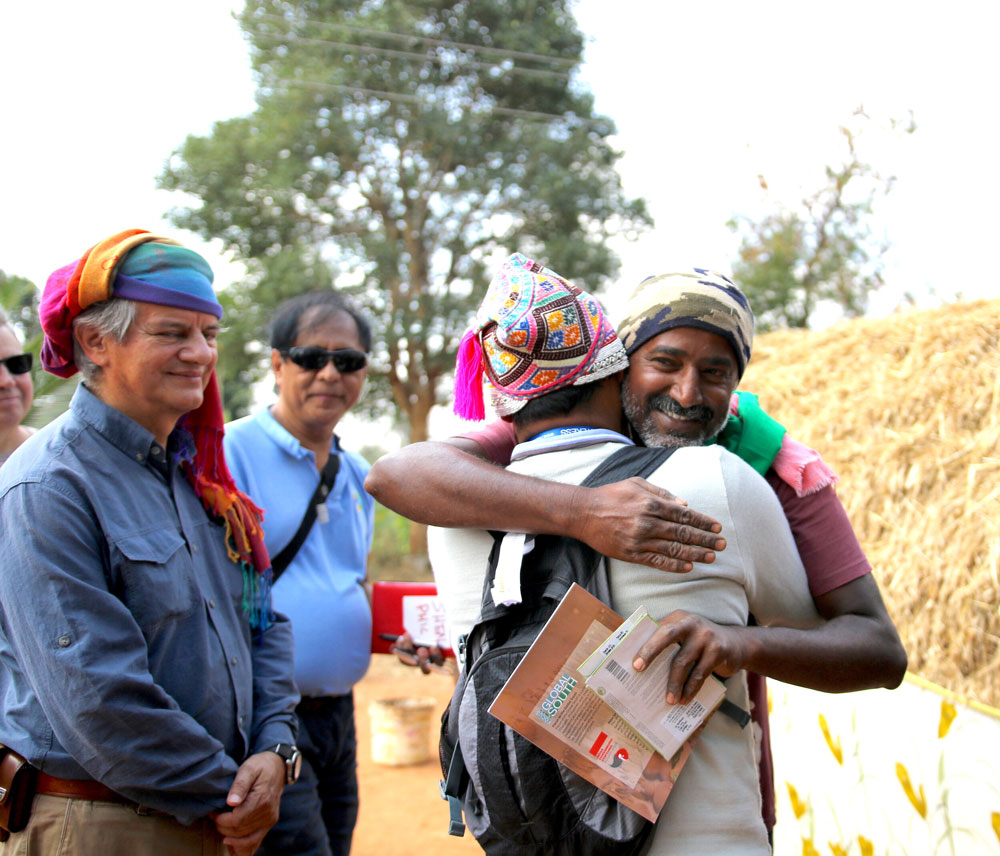
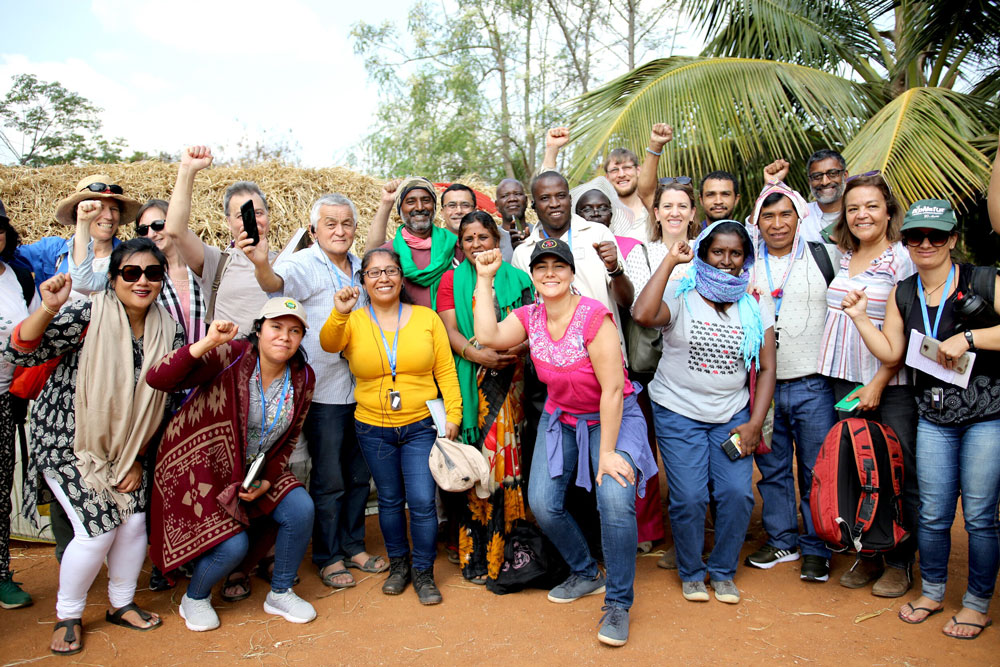
During group sessions and panel discussions, grantees spoke to the importance of sharing evidence-based agroecology solutions that grow out of the experiences of local communities. The evidence can be used to train youth and engage decision makers.
“Agroecology is a collective resistance against climate change and is the people’s alternative to agribusiness,” said Kavitha Kuruganti of ASHA (Alliance for Sustainable and Holistic Agriculture), a pan-Indian network of nearly 400 diverse groups that advocates for the wellbeing of small and landless farmers, and access to healthy, locally-produced food. The Indian experience illustrates that with favorable public policies, government support and strong grassroots organizing, agroecology can be adopted rapidly across rural communities.
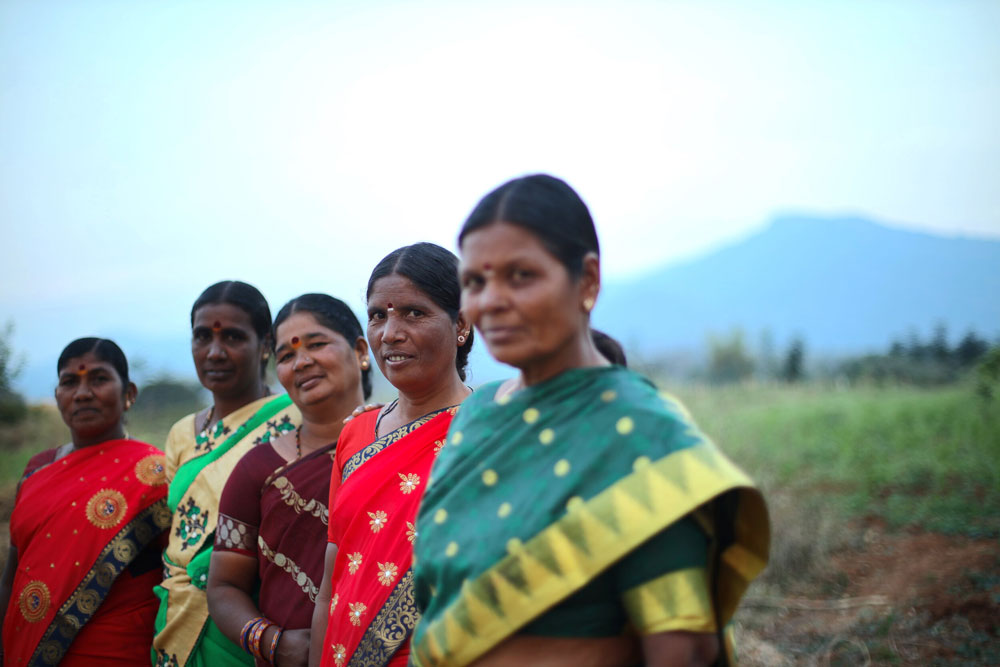
As Kavitha Kuruganti and Vijay Kumar pointed out, scaling agroecology up and out will need more than state support and enhanced financial flows. Social and community mobilization is also key. One of the building blocks of the ZBNF model was the participation of women’s self-help groups in Andhra Pradesh, which has helped it spread to more than half a million farmers across the state.
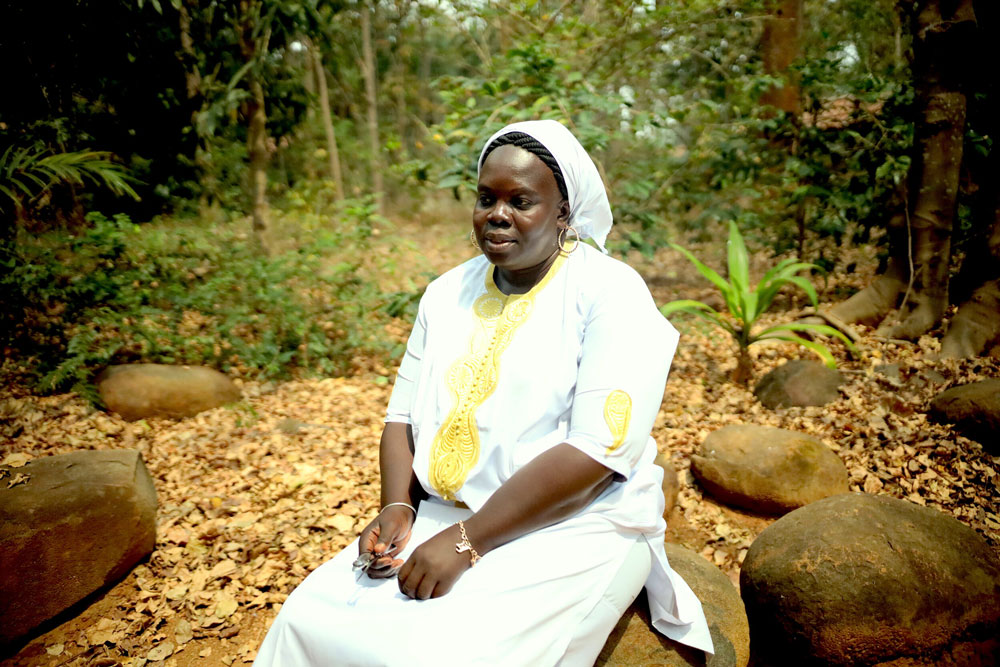
“Women play key roles in agroecology. They are the knowledge holders who work everyday [on farms]. [To be successful], we must also engage young people in a model that is focused on healthy food, community relationships and local consumption,” said Mariama Sonko, a Senagalese rice farmer. Mariama runs a business to create bouillon broth from local foods, and is the national coordinator of ‘We are the Solution,’ a pan-African campaign led by rural women to preserve traditional farming practices and promote food sovereignty. As part of this campaign, women farmers are also researching local rice varieties for reintroduction into markets.
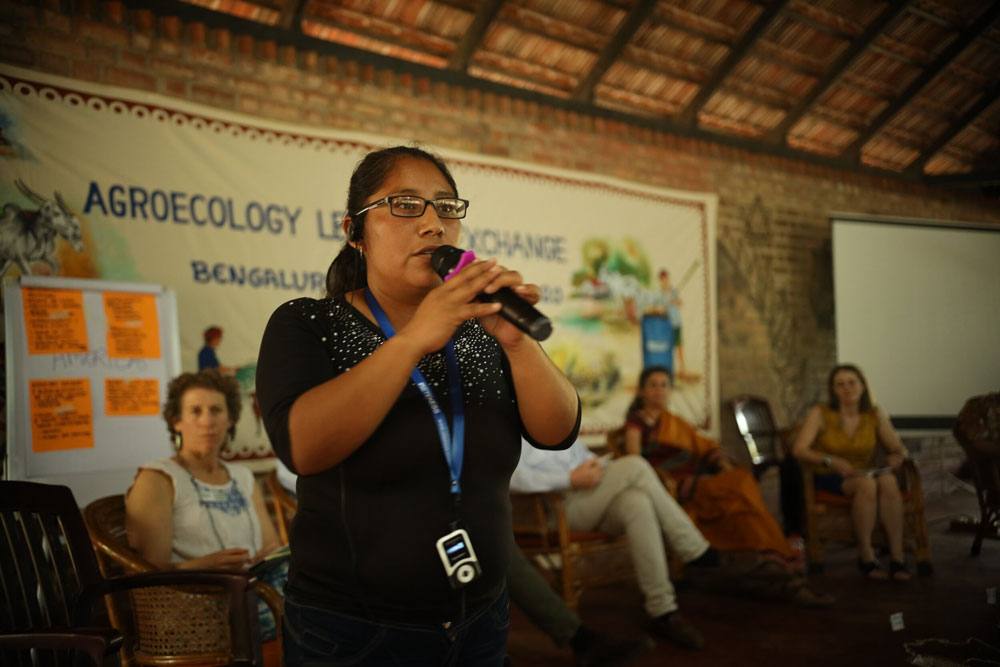
Maribel López, a farmer and organizer with Centro de Desarrollo Integral (Center for Integral Development of Mixteco Farmers), spoke about how the climate crisis impacts farming communities: “Climate change is urgent. We don’t get enough rain. We are working on preserving native seeds and conserving our soil. We are also trying to diversify our crops to have more food for our families. Agroecology helps make the land productive without hurting her,” she said.
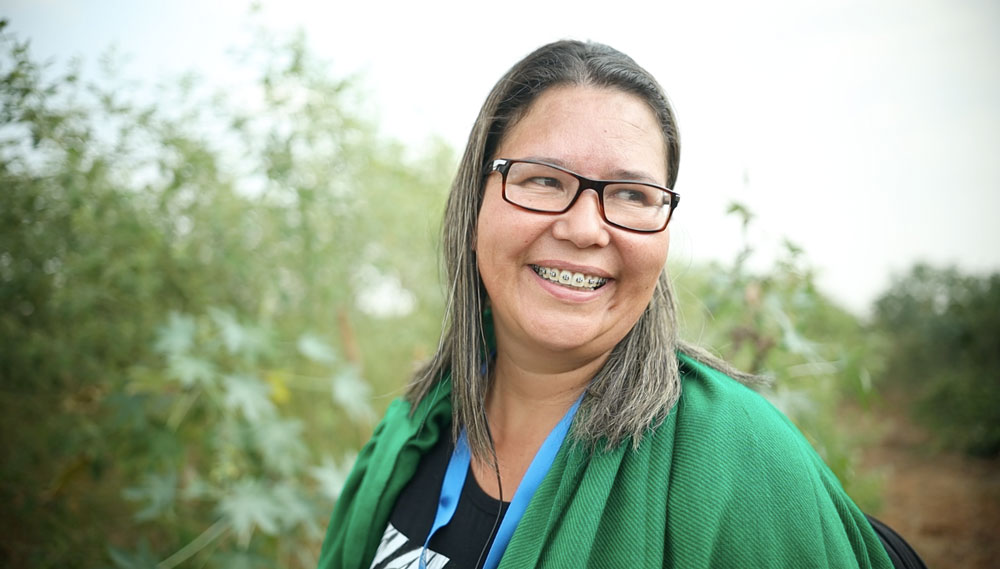
“I dream of a world of agroecology. A world without toxic chemicals and death…I fight for agroecology for my daughter and future generations. I believe we can take agroecology to formal education so that it can be studied and transformed into concrete science,” said Lidiane Gregorio, a farmer from Brazil and a member of Bionatur Seed Network. The Bionatur cooperative supports seed-producing families to gain access to new markets.
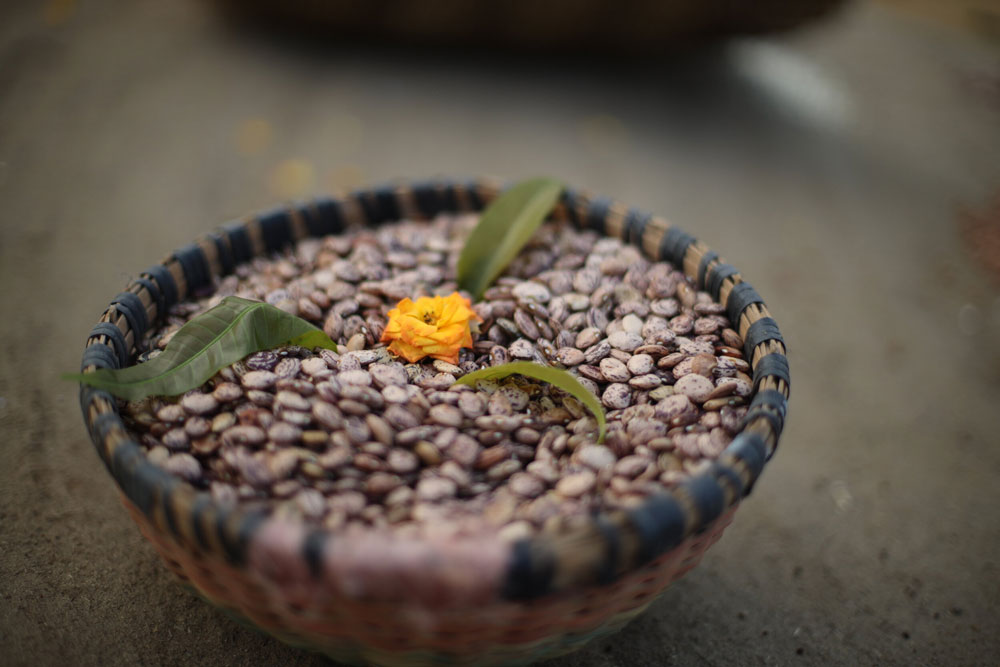
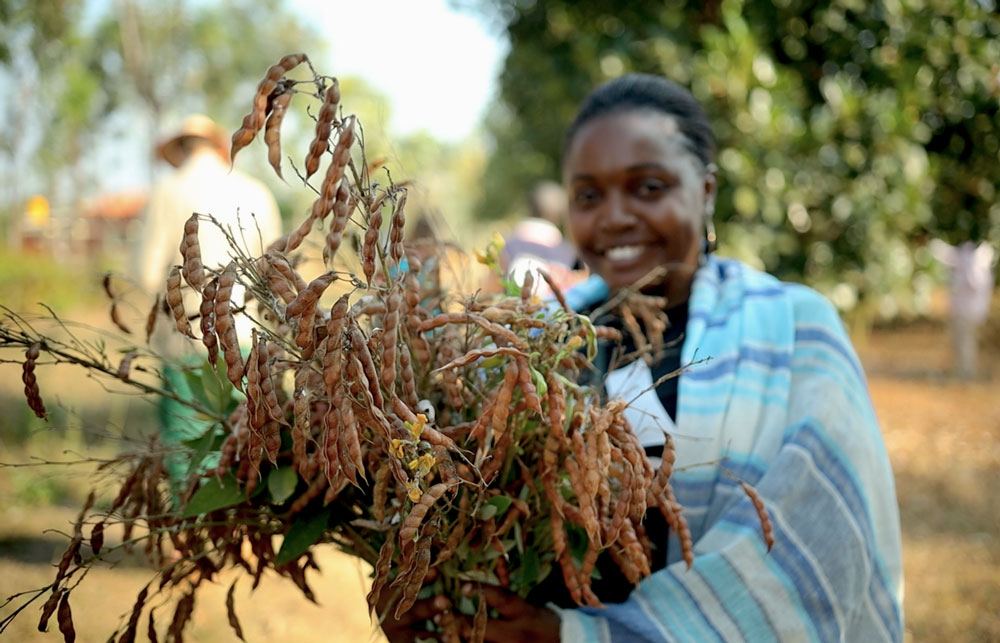
According to ETC Group, three companies control more than half of the global commercial market for seed, with Monsanto controlling more than a quarter of this share. “It is important for us to remember that at the heart of agroecology is diversity. And diversity is our best defence in the future. It’s about remembering our right relationship with the land that made us part of the incredible biodiversity on our planet,” said Gopal Dayaneni, Program Officer at ETC Group.
“Rutendo Zendah, a research and advocacy officer at the African Center for Biodiversity, (ACB) works to strengthen biosafety laws and policies to stop the influx of genetically modified organisms in South Africa and beyond. “Our organization is resisting and opposing the corporate expansion of Africa’s agriculture systems. Agroecology has revived the connection of farmers to the land and water. As a young African woman, I am glad to be a part of the change that is coming,” she said.
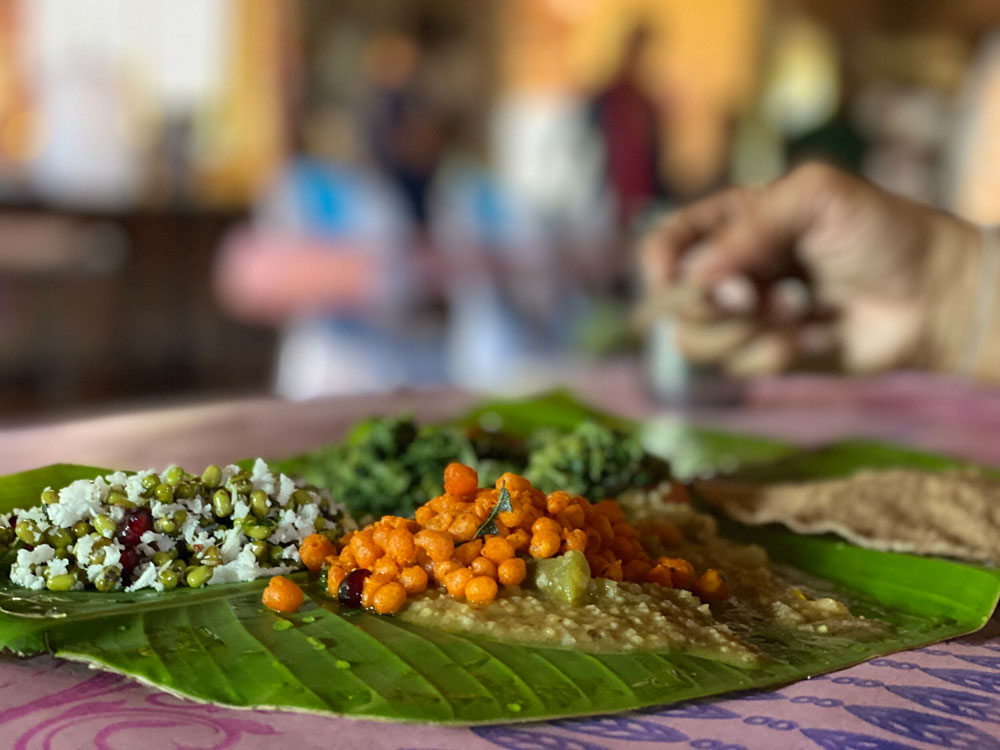
Access to healthy and nutritious food remains a luxury for many. According to the Food and Agriculture Organization, nearly 820 million people don’t have enough to eat. Patricia Flores, a member of the International Federation of Organic Agriculture Movements, spoke about the power of agroecology to mitigate hunger and improve nutrition in low-income communities. Flores is part of a collaborative working in mountain ecosystems in Asia, Africa and Latin America. In her region, Peru, agroecological interventions have improved the diets of 30-40% of low-income communities in high-altitude regions.
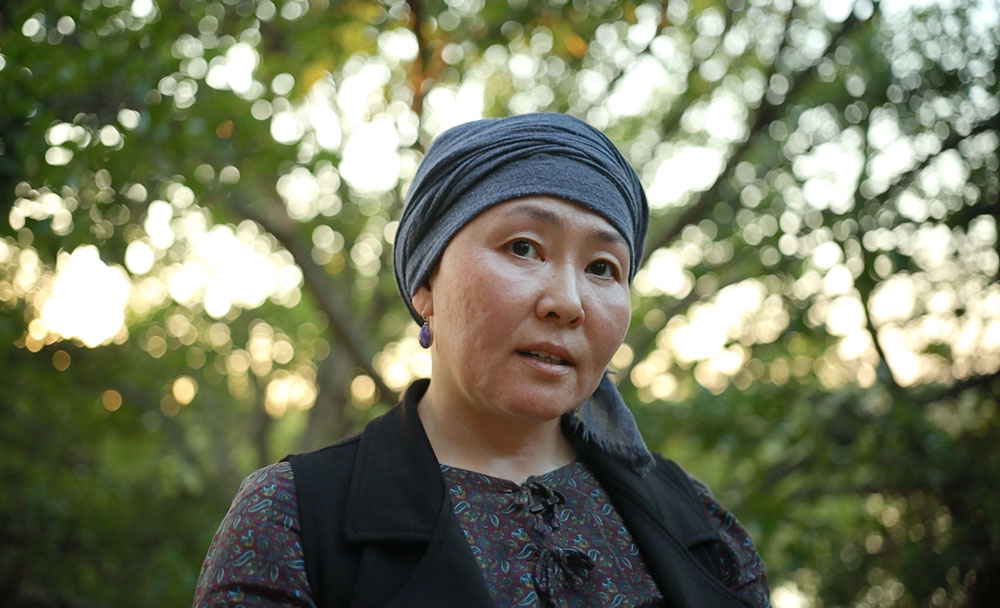
Indira Raimberdieva, Director of the Peace Building Center in Kyrgyzstan, stressed the importance of preserving the unique culture of nomadic communities and their pastoralist practices in Central Asia. “We partnered with the Baikal Buryat Center for Indigenous Cultures and started a project to revive the indigenous Buryat cow, a breed that was central to the steppe pastoralism in Buryatia. Now, they are focused on restoring populations of the Kyrgyz horse, another indigenous livestock breed that has been pushed to the brink of extinction by decades of neglect. Their work is based on a “spiritually-oriented worldview and traditional knowledge.”
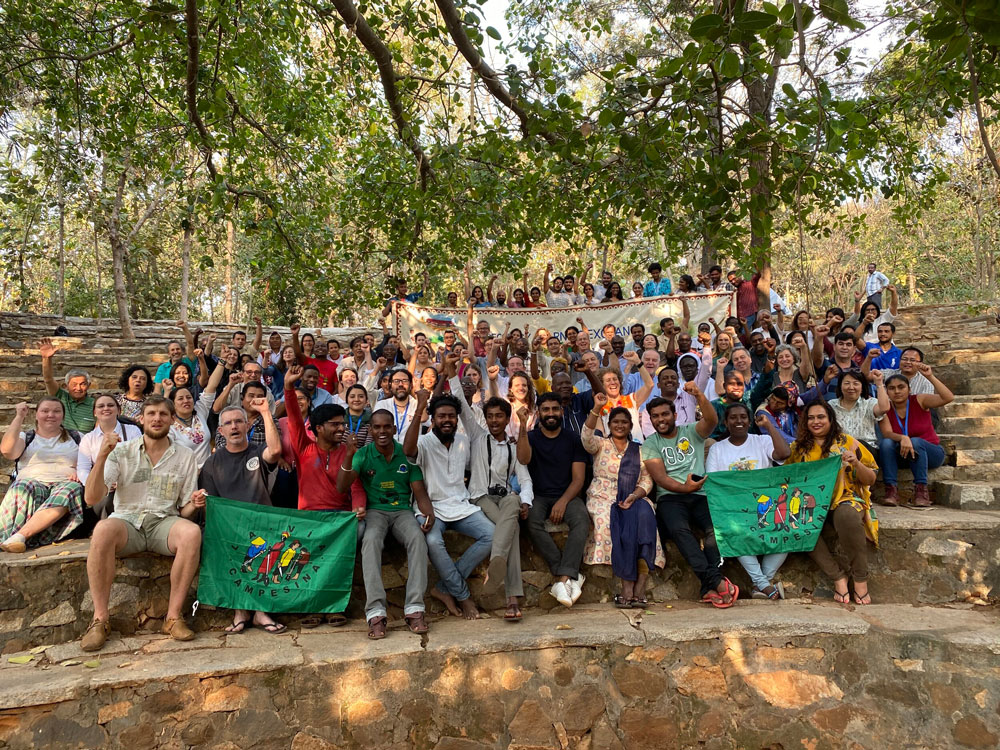
Participants left the Learning Exchange inspired and energized; eager to continue strengthening the connections they made. “I learnt a lot and I was really impressed by the amazing energy and knowledge of the participants. I believe we have a lot to learn from each other,” said Cristina Agrillo, policy officer at Slow Food Italy.
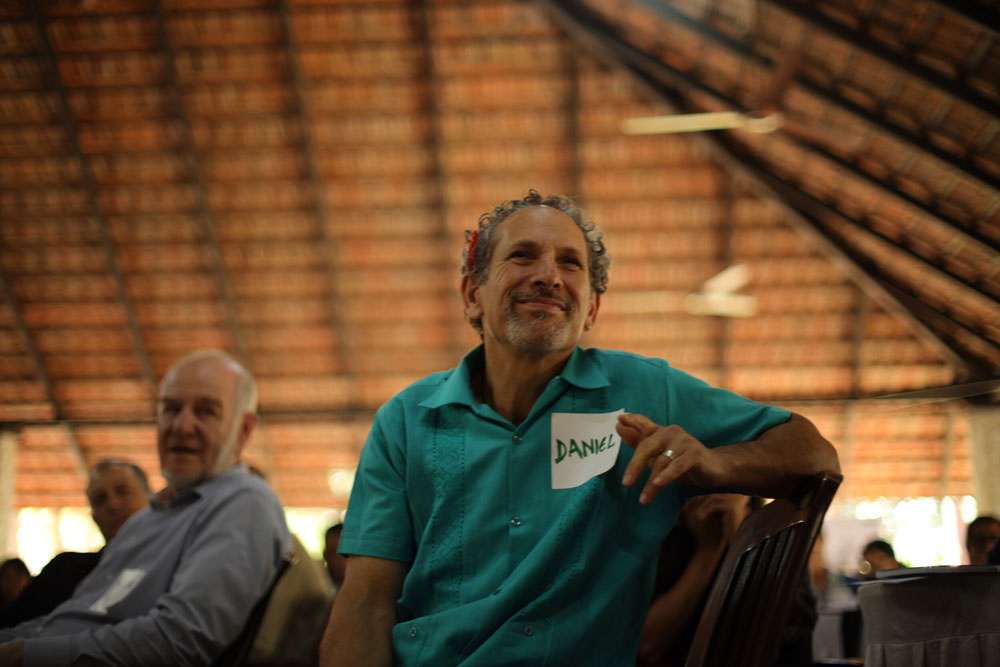
“Agroecology offers a tremendous and urgent opportunity right now for funders. There’s so much vibrancy and creativity in the movements on the ground – women, farmers, indigenous peoples, researchers and scientists – all working to deepen the impact of agroecology around the world,” said Daniel Moss, Executive Director of AEF.
Rucha Chitnis is a photojournalist, writer and an emerging filmmaker. Her work elevates a narrative of hope and resilience in the face of an ethnocentric lens that often erases and dehumanizes communities of color. She is a fellow at the International Women’s Media Foundation. You can read her stories here.
